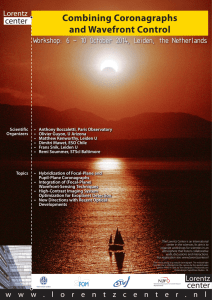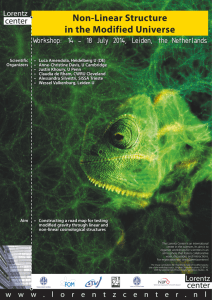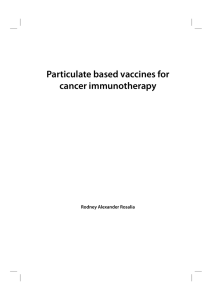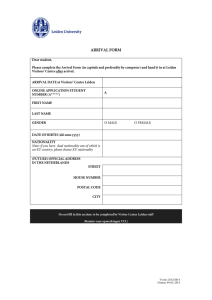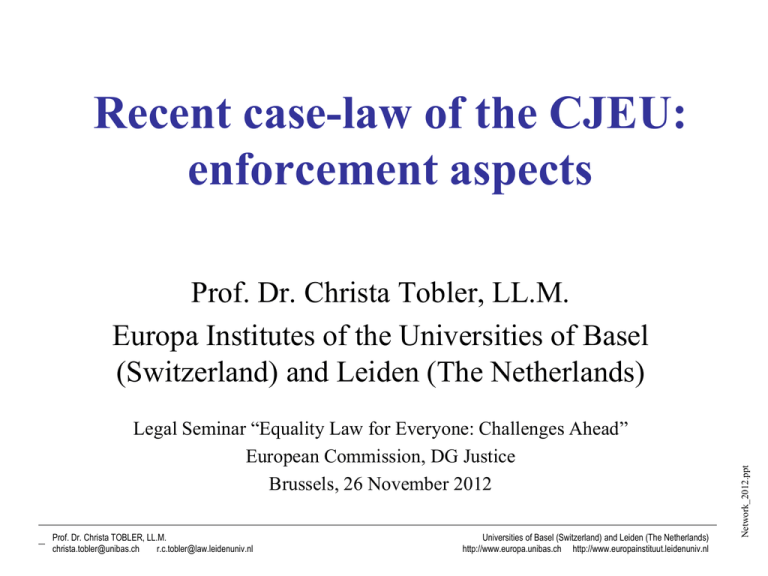
Recent case-law of the CJEU:
enforcement aspects
Legal Seminar “Equality Law for Everyone: Challenges Ahead”
European Commission, DG Justice
Brussels, 26 November 2012
Prof. Dr. Christa TOBLER, LL.M.
christa.tobler@unibas.ch
Prof.
Dr. Christa TOBLER, LL.M.,r.c.tobler@law.leidenuniv.nl
Universities of Basel (Switzerland) and Leiden (The Netherlands)
Universities of Basel (Switzerland) and Leiden (The Netherlands)
http://www.europa.unibas.ch http://www.europainstituut.leidenuniv.nl
Network_2012.ppt
Prof. Dr. Christa Tobler, LL.M.
Europa Institutes of the Universities of Basel
(Switzerland) and Leiden (The Netherlands)
Overview
Issues briefly presented
• General enforcement elements
• Specific provisions in modern Directives
• Case-law (actually, only one case in 2012 on these issues)
Prof. Dr. Christa TOBLER, LL.M., Universities of Basel (Switzerland) and Leiden (The Netherlands)
Network_2012.ppt
For the case-law, the presentation relies on the report
written by Colm O’Cinneide (University College London)
for the European Commission (Expert Network) and
entitled:
“The evolution and impact of the case-law of the Court of
Justice of the European Union on Directives 2000/43/EC
and 2000/78/EC”
2
General context
Enforcement elements to remember
• Starting point: principle of sincere cooperation (pacta sunt
servanda), Art. 4(3) TEU.
• Some specific elements:
–
–
–
–
Indirect and direct effect of EU law.
Right to an effective, proportionate and dissuasive remedy.
Right to damages from the Member State.
Duty of levelling up in individual and successful discrimination
cases (subsequent levelling down on a general level is possible …).
Prof. Dr. Christa TOBLER, LL.M., Universities of Basel (Switzerland) and Leiden (The Netherlands)
Network_2012.ppt
• All of these were developed through case-law of the CJEU.
• Some where codified in the most recent generation of social
non-discrimination law; plus provisions in the Charter of
Fundamental Rights.
3
Specific provisions: overview
Issues regulated in modern Non-discrimination Directives
• Usually, there is a specific chapter on ‘Remedies and
Enforcement’, plus there are relevant provisions in the part
on ‘horizontal provisions’.
• Important issues that are covered:
– Defence of rights: right to a judicial procedure (e.g. Art. 7 of
Directive 2000/43/EC).
– Burden of proof (e.g. Art. 8 of Directive 2000/43/EC).
– Right to an effective, proportionate and dissuasive remedy (e.g. Art.
15 of Directive 2000/43/EC).
– Penalties.
Prof. Dr. Christa TOBLER, LL.M., Universities of Basel (Switzerland) and Leiden (The Netherlands)
Network_2012.ppt
• Again, most of this is codified case-law, originally
developed in the context of Art. 6 of the so-called Second
Equal Treatment Directive (sex discrimination law).
4
Recent case-law: Meister (1)
Prof. Dr. Christa TOBLER, LL.M., Universities of Basel (Switzerland) and Leiden (The Netherlands)
Network_2012.ppt
Facts
• Ms Meister, a Russian national, applies for a job as an
“experienced software developer”. Even though she satisfies
all the requirements, she is unsuccessful. The job is readvertised.
• Ms Meister alleges that she has been subject to
discrimination on the grounds of sex, age and ethnic origin.
• In this context, Ms Meister seeks access to information from
the employer about the selection procedure, including
whether another person has been employed, and if so, based
on what qualifications. She needs this in order to make her
case (evidence).
5
Recent case-law: Meister (2)
Legal issues
• Do the provisions of the Directives 2000/43/EC,
2000/78/EC and of 2006/54/EC give an alleged victim of
discrimination a right to receive this information?
• If so, where the information given is not conforming, does
this give rise to a presumption that discrimination exists?
Network_2012.ppt
• The national court seized with the case turns to the CJEU
for help in interpreting EU law (preliminary ruling
procedure): Case C-415/10 Meister, decided on 19 April
2012.
Prof. Dr. Christa TOBLER, LL.M., Universities of Basel (Switzerland) and Leiden (The Netherlands)
6
The Court’s interpretation of the Directive (1)
• Starting point: the rule on the shifting of the burden of proof in
the Directives.
• The Court applies its gender equality case-law on this matter,
in particular Kelly (note the link between the different subfields of non-discrimination law!). Accordingly, EU law does
not give alleged victims of discrimination a specific right to
receive the information sought.
• However, a refusal by the defendant to make the information
available ‘may be one of the factors to take into account in the
context of establishing facts from which it may be presumed
that there has been direct or indirect discrimination’, which
would result in a shift of the burden of proof.
Prof. Dr. Christa TOBLER, LL.M., Universities of Basel (Switzerland) and Leiden (The Netherlands)
7
Network_2012.ppt
Recent case-law: Meister (3)
Recent case-law: Meister (4)
Network_2012.ppt
The Court’s interpretation of the Directive (2)
• The fact that the employer did not dispute that the claimant
satisfied the requirements for the post, the fact that she was
not invited to an interview and the decision to re-advertise
the post could also be taken into account in establishing the
existence of a presumption of discrimination.
• The Court also explicitly confirms that a presumption of
indirect discrimination could be established to exist on the
basis of statistical evidence.
Prof. Dr. Christa TOBLER, LL.M., Universities of Basel (Switzerland) and Leiden (The Netherlands)
8
Recent case-law: Meister (5)
Colm O’Cinneide’s conclusion
Network_2012.ppt
“The judgment in Meister thus provides valuable
clarification of the type of evidence that can establish a
presumption of discrimination and thus give rise to a shift
in the burden of proof: it is likely to become a significant
point of reference for domestic courts applying the burden
of proof provisions of the 2000 Directives for some time to
come.”
Prof. Dr. Christa TOBLER, LL.M., Universities of Basel (Switzerland) and Leiden (The Netherlands)
9
Thank you for your attention!
Network_2012.ppt
For further information
• Basel:
– Website: www.europa.unibas.ch
– e-mail: christa.tobler@unibas.ch
• Leiden:
– Website:
http://www.law.leidenuniv.nl/org/publiekrecht/europainsti
tuut
– e-mail: r.c.tobler@law.leidenuniv.nl
Prof. Dr. Christa TOBLER, LL.M., Universities of Basel (Switzerland) and Leiden (The Netherlands)
10



